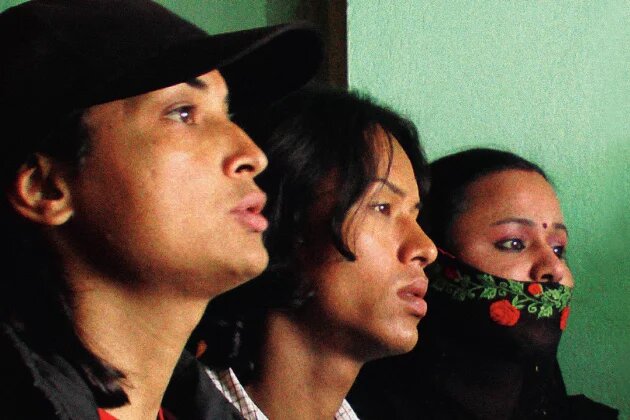
Report
The current Global Gaze Report provides an overview on how international donor organizations promote and financially support LGBTI organizations and projects in the Global South and East. It shows that the Heinrich Boell Foundation (hbs) by now earns international recognition for its intensive work in the field of LGBTI. For the first time, hbs was listed under the top ten promoters in the world. Furthermore the approach of the Heinrich Boell Foundation to integrate gender issues into all areas as a cross cutting issue was acknowledged as particularly effective. Due to the integrated discussion of other topics, the tolerance and respect for the LGBTI community can be strengthened.
HBS one of the global top ten grantmakers
The Heinrich Boell Foundation comes seventh on the top ten list in the category of the highest grants in 2010. Those grants account for 3.5% of all the grants being made. The sum of all supporters of LGBTI projects and communities increased strongly in the past few years. From 2005 to 2007 the amount doubled from 10.5 to 26.2 million US $. Between 2005 and 2010 the total sum increased by 69%. 64 grantmakers provided 35.5 million US$ for LGBTI organizations and projects in the Global South and East in 2010. The number of grants made in the same year rose to 731 which accounts for 53%.
Violations against LGBTI Community are being legalized
The Dreilinden gGmbH and the German Institute for Human Rights (Deutsches Institut für Menschenrechte) published a similar report, which however concentrates on the funds made exclusively by German organizations and institutes for the Global South and East. Here too the Heinrich Boell Foundation is being emphasized as the foundation supporting the highest number with in total 33 projects. But the results also show that a lot still needs to be done so human rights can be guaranteed for the LGBTI community. The rising interest in gender related issues also leads to changes in countries‘ law and constitution where homo- or trans*phobic regulations did not exist before. This does not necessarily mean that those laws are being acted upon but the real danger for the LGBTI community is the criminalization. That leads to societal stigmatization and indirectly legalizes violations by state or individuals. It also hinders the LGBTI community in their aim to legally organize and fight for their rights.
In Mauretania, Saudi Arabia, Sudan, Iran, Yemen, as well as parts of northern Nigeria and parts of southern Somalia the death penalty exists for some sexual practices. With this in mind it is disheartening to learn that Northern Africa received the least donor support. There is great need for action.
LGBTI rights have to become part of classic human rights work
Even though the donations and the representation in the media have increased, it is not enough money to guarantee the protection against attacks and grant their laws. Compared to the sums spent on human rights in the Global South the amount gathered for the LGBTI community is unremarkably midget. The report also shows that the group providing LGBTI with resources is still very small. For the future it will be important to widen the funding basis and also to sensitize the “classic” human rights organizations for the needs of the LGBTI.
In the last part of the Global Gaze Report two organizations answer questions about their LGBTI work. TrustAfrica points out that in 48 of the 54 African states the LGBTI laws are severely restricted and partly completely violated. Currently Uganda is a very prominent example.
The anti-homosexuality bill in Uganda
During the Berlin International Film Festival „Berlinale“ the LGBTI community also used the opportunity to present their issues to a broader public, yet in a sad context since the movie „Call me Kuchu“ celebrating its world premiere at the „Berlinale“ deals with the LGBTI community‘s fight for their rights in Uganda and the murder of David Kato. The so referred to as „anti-homosexuality bill“ is about to be adopted by the parliament. Originally it contained the death penalty for homosexuals. It seems that due to the alertness of the international community the death penalty was removed from the bill. In an interview after the premiere of the film „Call me Kuchu“ Naome Ruzindana points out that she believes those changes will absurdly enough worsen the situation for the LGBTI community in Uganda. Since now no one will follow or observe the process of the adoption of the anti-homosexuality bill and it could actually become a law. One would not be killed for being a LGBTI member, but imprisoned for the rest of one‘s life which makes no difference to Naome Ruzindana who‘s only option would be to flee the country.
Call Me Kuchu - Trailer from Call Me Kuchu on Vimeo.